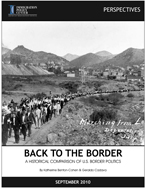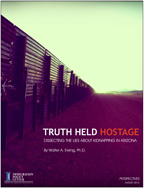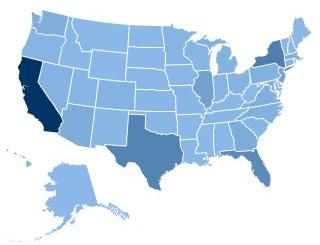 It’s hardly news that the complaints of our latter-day nativists and immigration restrictionists—from Sam Huntington to Rush Limbaugh, from FAIR to V-DARE—resonate with the nativist arguments of some three centuries of American history. Often, as most of us should know, the immigrants who were demeaned by one generation were the parents and grandparents of the successes of the next generation. Perhaps, not paradoxically, many of them, or their children and grandchildren, later joined those who attacked and disparaged the next arrivals, or would-be arrivals, with the same vehemence that had been leveled against them or their forebears.
It’s hardly news that the complaints of our latter-day nativists and immigration restrictionists—from Sam Huntington to Rush Limbaugh, from FAIR to V-DARE—resonate with the nativist arguments of some three centuries of American history. Often, as most of us should know, the immigrants who were demeaned by one generation were the parents and grandparents of the successes of the next generation. Perhaps, not paradoxically, many of them, or their children and grandchildren, later joined those who attacked and disparaged the next arrivals, or would-be arrivals, with the same vehemence that had been leveled against them or their forebears.
Similarly, the sweeps and detentions of immigrants during the early decades of the last century were not terribly different from the heavy-handed federal, state, and local raids of recent years to round up, deport, and occasionally imprison illegal immigrants, and sometimes legal residents and U.S. citizens along with them. But it’s also well to remember that nativism, xenophobia, and racism are hardly uniquely American phenomena. What makes them significant in America is that they run counter to the nation’s founding ideals. At least since the enshrinement of Enlightenment ideas of equality and inclusiveness in the founding documents of the new nation, to be a nativist in this country was to be in conflict with its fundamental tenets.Read more...
Published On: Mon, Sep 13, 2010 | Download File






